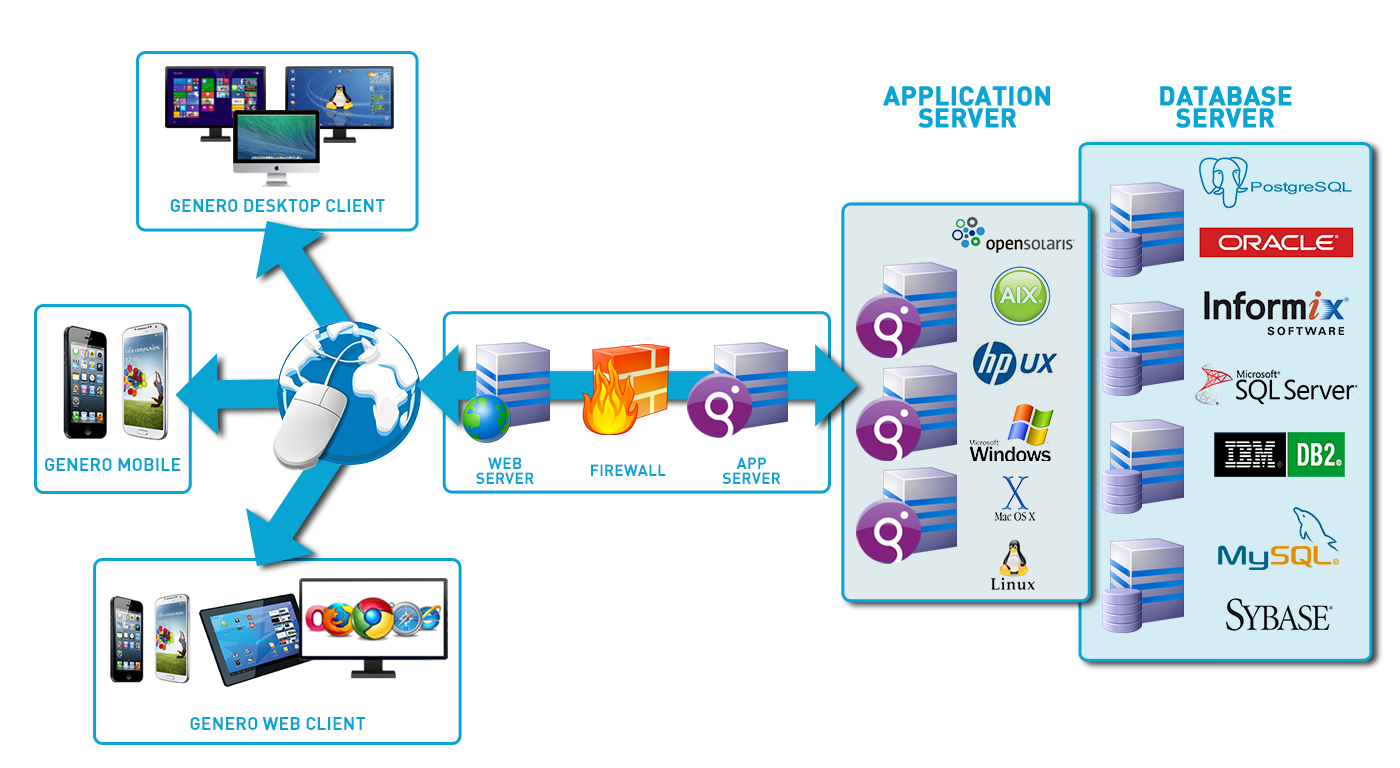Open the Power of No-Code for Open System Database Creation
Open the Power of No-Code for Open System Database Creation
Blog Article
Exploring the Benefits of Scalable Databases That Require No Coding Abilities for Efficient Information Monitoring Solutions
The introduction of scalable databases that get rid of the need for coding skills offers a transformative possibility for organizations looking for reliable information management services. By allowing non-technical users to harness the power of information with user-friendly interfaces, these systems boost ease of access and foster partnership across varied teams. Their cost-effectiveness and adaptability to progressing company requirements can dramatically simplify operational processes. As we consider the effects of such improvements, it comes to be essential to analyze exactly how they can reshape the landscape of data management and drive lasting growth in a competitive environment.
Improved Access for Customers
Improved access for customers is a critical facet of scalable databases, making sure that data administration systems are user-friendly and user-friendly. In a period where data-driven choices are vital, access permits a wider series of users, consisting of those without substantial technical competence, to involve with data source systems efficiently. This democratization of data access promotes improved partnership throughout divisions, equipping employees to make and extract insights educated choices.
Easy to use user interfaces, such as drag-and-drop attributes and aesthetic data representation, simplify intricate information interactions. These enhancements decrease the knowing contour associated with conventional data source management, allowing users to concentrate on leveraging data instead than grappling with technological intricacies. Scalable databases typically integrate adjustable dashboards and real-time analytics, offering individuals with prompt insights customized to their specific needs.

Cost-Effectiveness and Source Cost Savings
Efficient data management not just rests on access however likewise on cost-effectiveness and source savings. Scalable data sources developed for individuals with no coding skills substantially decrease economic worries typically associated with traditional data source administration systems. By removing the need for specialized shows expertise, organizations can allocate their resources more successfully, focusing funds on core business activities as opposed to substantial training or working with skilled employees.
In addition, these data sources commonly make use of cloud-based solutions, which even more reduce expenses connected to hardware and maintenance. Organizations can scale their database remedies according to their needs, staying clear of the expenses incurred from over-provisioning sources. This adaptability indicates businesses can adapt to altering needs without incurring unneeded prices, causing significant long-term cost savings.
In addition, straightforward interfaces simplify information entrance and monitoring processes, decreasing the time invested on management jobs. This efficiency translates right into labor cost financial savings, allowing groups to concentrate on tactical initiatives rather than routine maintenance. On the whole, adopting scalable data sources that require no coding skills promotes a much more affordable method to information management, making it possible for companies to maximize their sources while keeping high levels of functional performance.
Improved Partnership Across Teams

Moreover, scalable databases help with smooth interaction amongst group members. With easy to use interfaces that require no coding skills, staff members can quickly develop, change, and share reports or control panels customized to their details requirements. This democratization of information equips non-technical individuals to contribute understandings, enhancing the collective environment.
Furthermore, these data sources sustain simultaneous access, enabling numerous customers to service the same dataset simultaneously. This feature improves performance, as groups can take part in joint data analysis without the danger of version control issues. The capability to leave remarks or notes directly within the database better advertises find here dialogue and clarifies data interpretations.
Streamlined Data Administration Processes
In today's data-driven atmosphere, companies identify the need of streamlined data administration processes to maximize efficiency and accuracy. By leveraging scalable data sources that require no coding skills, organizations can streamline their data handling and decrease the complexities commonly connected with conventional database systems. This accessibility equips non-technical individuals to involve directly with information, assisting in quicker decision-making and lowering dependence on specialized IT employees.
Streamlined information management processes enhance process by automating routine jobs such as data access, recognition, and coverage. Automated information combination ensures that info from various resources is aggregated flawlessly, getting rid of silos and fostering a linked view of vital service metrics (no-code). User-friendly interfaces permit employees to control data conveniently, allowing them to produce understandings that drive critical efforts without the need for substantial training.
This performance not only accelerates functional procedures but also decreases the possibility for human error, guaranteeing that data continues to be reputable and precise. Ultimately, streamlined data management processes via scalable data sources bring about improved productivity, permitting organizations to concentrate on core activities while making certain that their information administration practices are effective and reliable.
Scalability for Expanding Organizations

For increasing business, the ability to scale up or down is vital. A scalable database can take care of an increase of data created from new clients, products, or solutions, making sure that company operations remain uninterrupted. These data sources offer the capacity to handle peak loads successfully, which is important throughout periods of rapid growth or seasonal spikes.
In addition, several scalable data source remedies are developed with easy to use interfaces that require no coding skills, encouraging non-technical staff to handle data successfully (no-code). This democratization of data management enables organizations to designate sources tactically and minimize reliance on specialized IT employees
Inevitably, taking on a scalable database not just improves operational effectiveness however also fosters a setting where companies can innovate and progress without the restraints of standard data source systems. This versatility positions organizations for lasting success in today's competitive landscape.
Final Thought
Finally, scalable databases that need no coding abilities give significant benefits for reliable data management. These systems improve availability for non-technical individuals, decrease functional prices, and advertise partnership throughout teams. By simplifying data management processes and offering scalability for expanding organizations, such remedies make it possible for organizations to adapt to changing demands successfully. Ultimately, the fostering of these user-friendly data sources cultivates development and settings services for lasting success in a dynamic setting.
Enhanced ease of access for users is an essential aspect of scalable databases, ensuring that information management systems are user-friendly and intuitive.Easy to use interfaces, such as drag-and-drop functions and visual information representation, simplify intricate data communications. On the whole, taking on scalable databases that require no coding abilities promotes a much more economical technique to information administration, enabling organizations to optimize their sources while keeping high degrees of operational effectiveness.
By leveraging scalable databases that require no coding abilities, services can streamline their data handling and minimize the intricacies usually associated with standard database systems - no-code.Streamlined information monitoring procedures improve process by automating routine tasks such as information entry, recognition, and reporting
Report this page